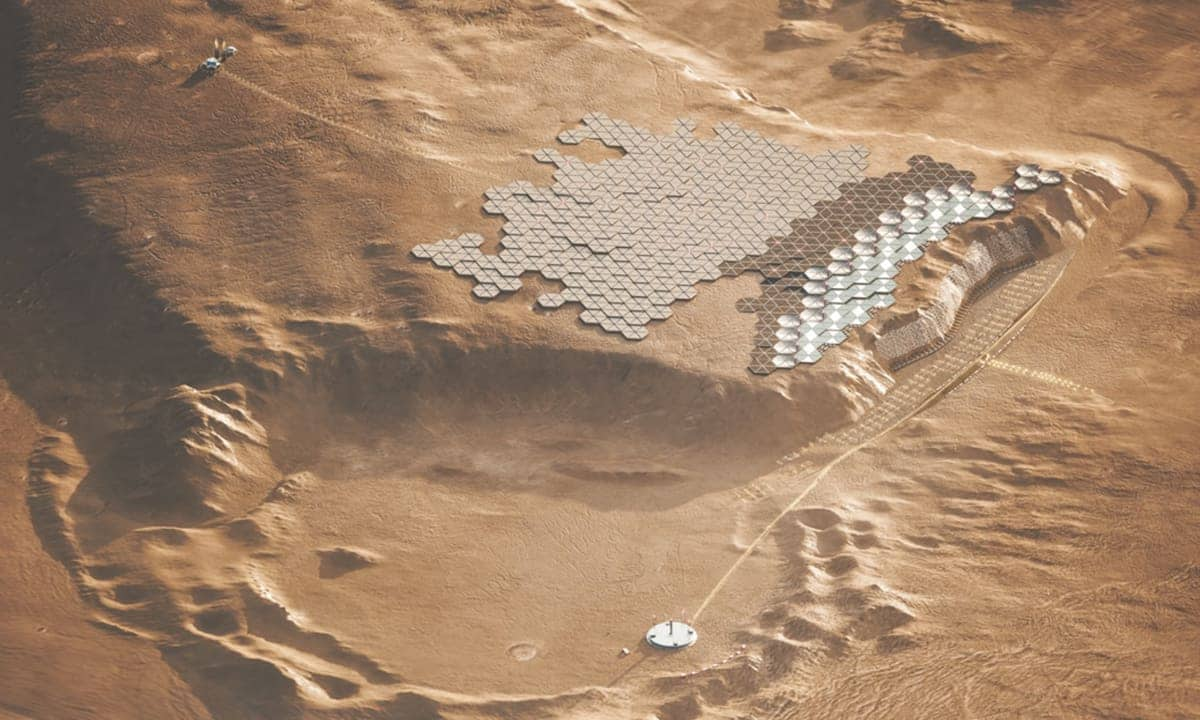Life on Mars might be more than just a song, now that plans for the first sustainable city have been unveiled!
Designed by ABIBOO studio, the first region to be inhabited could be able to house one million humans.
Nüwa is set to be the capital of five cities, each projected to accommodate between 200,000 and 250,000 individuals, and has a very particular design that could only be achieved on the surface of the red planet.
The architects have worked alongside academics from SONet, a group of professionals dedicated to the development of sustainable human settlements on other worlds, including the Moon and Mars.
The cities will have a vertical design, consisting of homes, offices and even green spaces, with energy coming from solar panels, and oxygen produced by plants.
The main source of food will be plant-based, and a carefully designed structure will protect inhabitants from radiation, impact from meteorites and maintain just the right atmospheric pressure.
One of the best parts of building Nüwa on Mars, is that the planet offers plenty of water for the construction, as it was stated by Alfredo Muñoz from ABIBOO, “with the water and the Co2, we can generate carbon and with the carbon, we can generate steel.”
Whether you wanna go shopping, visit museums, get to the space airport or just go to school, mobility is definitely not an issue on Mars, with high-speed elevators connecting the city in a vertical direction, while buses and trains will get you everywhere if you wanna travel horizontally.
Nüwa is located on the side of a cliff and the construction is set to start in 2054, however arriving on the red planet could be a little complicated, as Mars is closest to the earth just a couple of weeks every two years.
,type=downsize)
